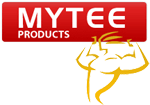If you’re looking for a secure connection for your towing needs, then you need a tow Trailer Coupler. This rigging device provides a sturdy connection between your trailer and towing vehicle. More importantly, a Trailer Coupler can prevent the instance of your trailer sustaining any damage, causing an accident on the road or putting other drivers in harm. Moreover, they can accommodate the style and weight capacity of any trailer.
Though, a coupler is only as good as your trailer’s tongue. These two components must work in harmony, otherwise you could be looking at an unstable connection.
At Mytee Products, our Connor Towing Trailer Tongue Coupler can especially ensure you tow your materials safely and efficiently. Its durable spring and latch feature allows for easy installation. More importantly, you can use our coupler for any towing job. You can even turn it into a boat trailer coupler. If you ever wondered how to attach or even adjust a trailer coupler, you’ll want to read this blog to know more about Towing Trailer Coupler Guide .
What Is A Trailer Coupler?
As mentioned before, a Trailer Tongue Coupler is a must-have component that ensures reliable and efficient towing. In general, the rigging device attaches the Trailer Tongue and connects to the hitch ball of the towing vehicle. This connection ensures that your trailer and tow truck stay together throughout the towing job.
Besides providing a super strong connection point, they also offer stability and versatility. A trailer hitch coupler or trailer ball coupler will prevent your trailer from swaying on the road. They can also be adjusted to fit your towing needs. Even better, a heavy duty trailer coupler could also feature safety devices, like a coupler pin and lock.

What Is A Trailer Coupler
These trailer coupler parts keep your connection secure throughout the duration of the drive. Other features may include weight distribution systems that balance out the weight of your trailer over your tow vehicle and axles. Not to mention, they’re easy to install and remove, saving you tons of time prepping for the long journey head.
How Does A Trailer Hitch Coupler Work?
Your Trailer Couple can do wonders for your towing needs. Though, ensuring that you have proper installation of your coupler is crucial for both safety and maintenance reasons. Here are a few key tips to remember about how a trailer coupler works:
- How to Install a trailer coupler: Installing a heavy duty trailer coupler can be as easy as adding and subtracting. First, line up your trailer tongue with the frame of your tow truck. Once that’s done, place the trailer coupler onto the back of the trailer tongue.
When you’re positive everything is in their perspective, you can start the tightening process. Start by inserting your bolts and nuts onto the trailer coupler and tongue. Next, make sure your coupler is leveled and adjust the bolts if necessary. To ensure you have an iron-clad connection between the trailer coupler and tongue, torque your bolts to their recommended levels, making sure they’re secure.

How to Install a trailer coupler
To establish smooth movement between your coupler and hitch ball, apply grease to the components. Also, check that all your chains and cables are connected to the towing truck’s hitch.
At the end of the installation process, test your connection once more and double check everything. Simply attach the coupler to the hitch ball, lock it in place, and give your trailer a good push, making sure it stays connected.
- How To Replace Or Remove A Trailer Coupler: On the other hand, if you want to replace or remove your trailer coupler, here are another set of steps to follow. First, park your trailer and disconnect it from your tow truck. Be sure to use stands or blocks to secure your trailer.

How To Replace Or Remove A Trailer Coupler
Moreover, remove your old coupler from your towing vehicle’s hitch. Be sure to use wrenches and a socket set to remove bolts of an old coupler. Next, detach the old coupler from the trailer tongue. Clean the tongue to remove the debris, rust or old grease to ensure a safe surface to attach a new coupler. Afterwards, place your new coupler on the trailer tongue and line up the bolt holes with the ones on the tongue. Put in your new bolts, secure them with nuts, and tighten them. Rub your hitch ball socket down with a little elbow grease and presto, you’re ready to start towing.
Read More – Demystifying The Pintle Hitch: Unraveling Its Functionality And Practical Uses
A Size Measurement Guide For Your Trailer Coupler
Understanding how to install and remove a trailer coupler are just the first two steps in ensuring you’re towing safely. Now it’s time to go over how the size of your Trailer Hitch Coupler affects your towing needs.
- Size Measurement Of Each Part

Connor Towing Trailer Coupler, Trailer Tongue, Boat Trailer Coupler Dimensions
No matter if you’re using a bolt on trailer coupler or a trailer ball coupler, size matters. In general, couplers typically have ball sizes that fall somewhere around 1 ⅞ inches and 2-5/16 inches. Mytee Products Connor Towing Trailer falls in the middle of those two measurements, coming in at 2.” Furthermore, our 2” trailer coupler has a ¼” lock hole and the overall length of the coupler at 3.” Even better, it includes a trailer coupler locking pin.
- How To Measure Trailer Coupler Size
Moreover, your trailer must have a ball that can accommodate the size of its coupler. Of course, you can always go the easy route and find the trailer coupler size stamped on the coupler itself. However, if you’re more hands on with your towing job, you might opt to measure it out yourself.
Simply use a ruler or measuring tape to calculate the opening of your coupler. The measurement will come out to be the size of the trailer ball needed and the coupler’s opening size must match the diameter of your trailer.
Use These Steps To Hitch Your Trailer
Installing and removing a coupler from trailer can really help make your towing job all the more easier. Though, you also need to understand how best to hitch your trailer. Follow these key steps in Towing Trailer Coupler Guide:
- Line your trailer up with the trailer tongue. Once they’re a foot away from each other, stop and make the necessary adjustments to the trailer coupler height. The coupler must have clearance over the trailer ball.
- When everything is lined up with each other, put the vehicle in park and engage the emergency brake.
- Use the trailer jack to lower your coupler until it’s resting on the ball. At this point, the coupler latch must be in an upward and unlocked position before lowering it onto the ball.
- Be sure to grease up the trailer ball to ensure a smooth connection.
- Now it’s time to secure your setup. Engage the coupler’s latch and secure it with the lock pin. Make sure the connection is secure by jacking up the trailer tongue. If it falls off, readjust it.
- Adding another layer of securement, use safety chains. Place them in a crisscross pattern beneath your coupler to create a sort of cradle. This is used in the instance that your trailer coupler disconnects from the ball. The cradle will catch it before hitting the ground. Also, your chains should be rated to exceed the Gross Trailer Weight (GTW) to ensure safe towing.
- Once your coupler is secure, retract your trailer jack and get it out of the way for towing.
- Connect your tow truck’s wiring harness into the trailer. Make sure there’s no excess wire between your tow truck and trailer by simply wrapping the wiring around the trailer tongue. When there’s a sufficient amount of wire length, put the trailer-side plug into the vehicle-side socket.
- Lastly, check that your lights are working properly. This includes everything from trailer lights, hazards, running lights and brake lights.
Read More – What Is A Grade 70 (G70) Towing Chain?
Other Products To Consider When Hitching A Trailer
- 8 Ton Pintle hook With Ball Hitch: Mytee Products’ Pintle Hitch can pretty much do it all. It’s great for heavy-duty towing, provides excellent maneuverability, can be mounted on any hitch and even comes in two different sizes.
- Heavy Duty Pintle Hook Rigid Mount Hitches: Our Heavy-duty Pintle Hooks come just as mighty as well. While the 10-Ton Pintle Hook has a maximum gross trailer weight of 20,000lbs, the 30-ton Heavy duty rigid mount pintle hook version can handle up to 60,000lbs.
- Pintle Hook Mounting Plate: Also, Mytee Products’ Pintle Hook Mounting Plate comes fully adjustable and can offer you three different height positions. Not to mention, its steel construction makes for a long-lasting product that can withstand even extreme weather conditions and usage.
- 2″ Hitch Receiver w/ 3/4″ D-Ring Shackle: Our 2” Hitch Receivers also packs a punch. Both of our ⅝” hitch lock pin and standard hitch pin models allow for easy installation, versatility, a WLL of approximately 5 tons and can even tow ATVs.
- Heavy Duty Greasable Strap Style Truck Trailer Cargo Dump Door Hinge: Additionally, truckers can use this product to help replace or upgrade their dump trailer door hinges. Mytee Products offers both the Heavy Duty Dump Trailer Door and Short/Long Leaf styles which keep your hinges greased up and in working condition.
- Trailer Hitch Pin With Lock: Mytee Products’ Trailer Hitch Pin with Lock can keep your materials safe from theft. It allows you to lock a ball mount right onto your trailer hitch, so you won’t have to worry about thieves stealing your cargo.
- 1.25″ – 2″ Anti Rattle Hitch Tightener U Bolt: Our Anti-Rattle Hitch Tightener U Bolt will get rid of any loud noise from your trailer when installed onto your trailer ball hitch, cargo carrier or even a bike rack. This product comes with two Lock washers, Flat Washers and Nuts, as well as one Ubolt and Plate.
Read More – 11 Useful Tools To Launch Your Towing Career In Trucking Industry
Our Trailer Coupler Has Everything You Need
Mytee Products always has the products you’re looking for. Our towing products, such as the Connor Towing Coupler, especially can make any towing job go by fast. In general, trailer couplers provide the best securement between your tow truck and trailer. Though, knowing how, when and why to use Trailer Couplers is fundamentally important as well. Equally important, is knowing which companies offer the best couplers in the business.
Our trailer coupler especially offers long-lasting and durable quality that you won’t find anywhere else. Not to mention, the use of our products like the 2” Hitch Receiver w/ ¾” D-Ring Shackle can get your trailer hitched in no time. At the end of the day, you want a job done well. Mytee Products’ trailer coupler can make that happen.














